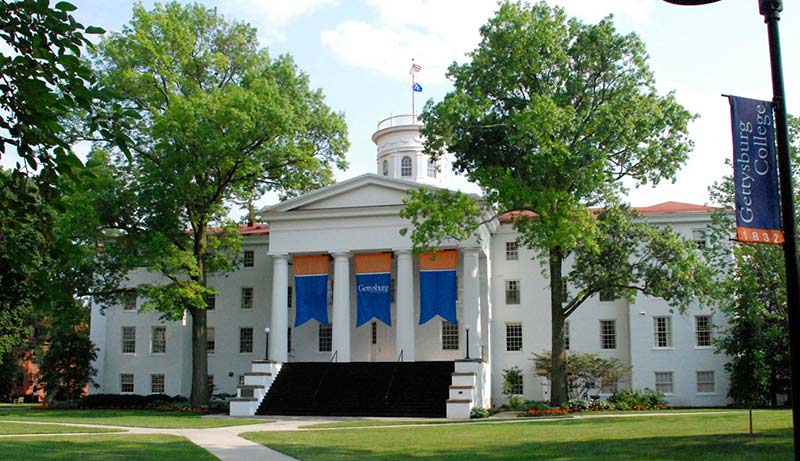The mission of the Office of Diversity & Inclusion is to strategically lead, coordinate, and develop overall diversity, equity, and inclusion (DEI) policy, education, and activities to advance inclusive excellence in the College’s learning and working environments, as well as to enhance belonging and the intercultural awareness of faculty, students, and staff.
Diversity StatementFreedom of Expression Philosophy
June 2025
Our diversity, equity and inclusion (DEI) Celebrations Calendar identifies some of the principal observances that are particularly significant to our different Gettysburg College communities. While not exhaustive of all commemorations, with this calendar we highlight and educate on the diverse cultural legacies that enrich all of us.



For more information on the different events taking place in our Gettysburg College community, please refer to our DEI Events listing.
Land Acknowledgement
Gettysburg College is located in a storied place; a site of historical trauma and building of national identity with deep ties to racial justice and injustice. Yet, a major aspect of our story has been absented: that this place is Indigenous land. The Gettysburg College Land Acknowledgement initiative has sought to address the erasure of Indigenous presence while understanding this work to be ongoing. The land acknowledgement statement itself is an important first step in building relationships with the Indigenous communities who call this place home.
Contact

Address
Campus Box 2994
Pennsylvania Hall 2nd Floor
300 N. Washington Street
Gettysburg, PA 17325
Phone
Fax
Memberships
Gettysburg College is proud to be a member of the following organizations:
AMERICAN TALENT INITIATIVE (ATI)
Black Doctoral Network
DIVERSITY ABROAD
CEO Action
HACU (Hispanic Association of Colleges and Universities)
LADO (Liberal Arts Diversity Officers Organization)
NADOHE (National Association of Diversity Officers in Higher Education)
NCFDD (National Center for Faculty Development & Diversity)
How to join the NCFDD